Sailing for beginners: These licences are for basic and advanced training in sailing
Fabian Boerger
· 09.04.2025
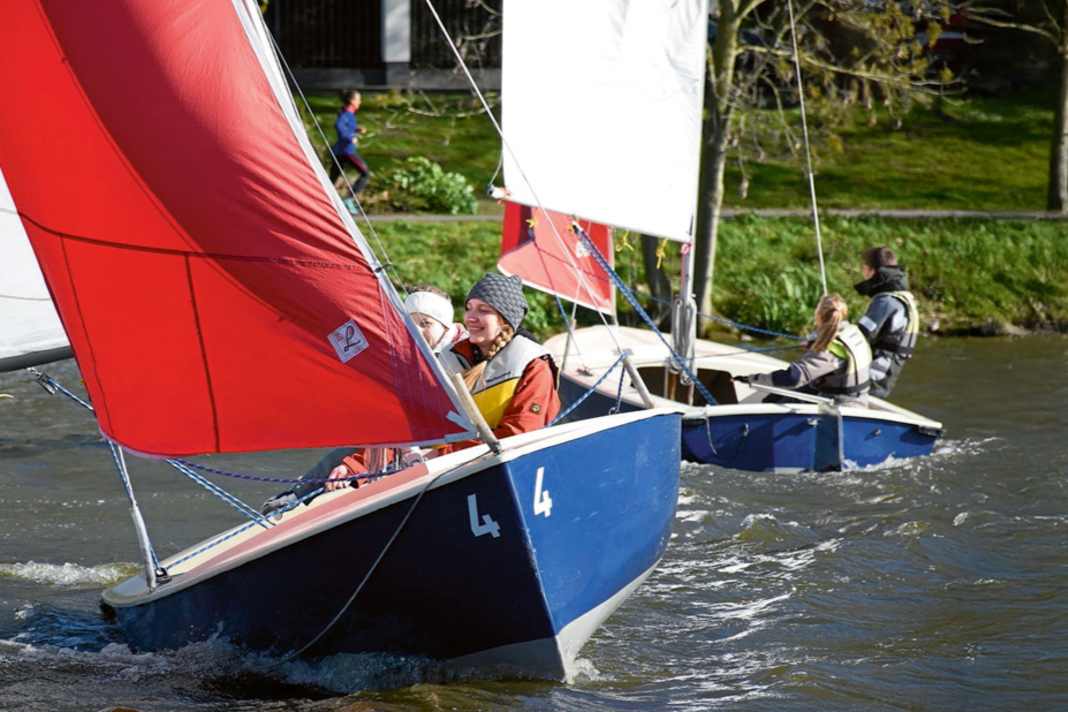





Be honest: Can you take a blunt double bearing, create a deflection chart or draw a current triangle? Or are these terms all foreign to you? If so, don't worry. The know-how you need as the skipper of a sea-going yacht can be learnt. And nobody has to learn everything at once. Instead, the various boating licences offered in Germany build on each other. Beginners can feel their way forward step by step.
Read also:
The specialist terms mentioned above are, for example, part of the Sportküstenschifferscheins (SKS). This is an association licence, which means that it is not mandatory in order to operate a sailing boat. The sport boat licence (SBF) is different, whether in the "inland" or "sea" variant. It must be held as soon as a boat is equipped with a slightly more powerful engine.
So as long as you are only sailing a dinghy with a small outboard motor at the stern, you theoretically don't need a licence at all. In practice, however, this does not apply to all waters, and if you want to hire a boat somewhere, you will usually be asked by the hire company to produce a sailing licence. Quite apart from that, it makes little sense, and may even be dangerous, to try to set sail without any knowledge. In the first instalment of this beginner's series, we therefore showed you numerous ways of gaining sailing experience without having to take responsibility for a boat and crew.
However, the desire to take on the role of skipper usually arises at some point. But do you really need to learn the basics of classic navigation? After all, chart plotters and tablet apps have long since replaced working with compasses, triangles and pencils on paper charts. And in fact, electronics make navigation child's play. A few clicks are all it takes to plot the right course. Nevertheless, the content taught during sailing training remains relevant - and there are several reasons for this. On the one hand, the legislator sets clear guidelines. For example, it is forbidden to rely exclusively on electronic media. Above all, however, it is important to know the basics, contexts and backgrounds, whether in terms of navigation, meteorology, on-board practice, sailing trim or environmental regulations.
This does not mean that every sailor needs the full range of boating licences. If the radius of action is limited to the coast, SBF and SKS are usually sufficient. Those who are drawn to more distant destinations, on the other hand, should first broaden their knowledge horizon.
Overview of various certificates
Some official boating licences are required by law. Others are a valuable addition.
Pleasure craft licence (SBF) inland and sea
The pleasure craft licence (SBF) is the standard, official sailing licence. The SBF is generally required for recreational craft motorised with more than 15 hp. The SBF See is valid on maritime waterways and in coastal areas up to three nautical miles. This is the only area where a licence is compulsory in Germany. It is also a prerequisite for obtaining other official driving licences. The SBF Binnen can be taken under motor, under sail or in combination. There are also special cases: In Berlin and Brandenburg, it is sometimes also compulsory for purely sailing boats.
Prerequisites
- Minimum age 16 years
- A medical certificate
- Persons aged 18 and over must present a valid driving licence or a certificate of good conduct
Procedure
There is a written and a practical examination. They have a modular structure. Certain parts of the SBF Binnen examination can also be recognised for the SBF See and vice versa. More info: sportbootführerscheine.org
Pleasure craft licence (SKS)
With the SKS licence, skippers demonstrate that they can operate sailing yachts in coastal waters within the twelve nautical mile zone. This licence is not mandatory for recreational sailors. However, it is mandatory for those who wish to operate commercial pleasure craft in German coastal waters. In addition, many charter companies require a valid SKS to be presented before a yacht can be hired.
Prerequisites
- Minimum age 16 years
- Possession of the SBF See
- Proof of 300 nautical miles on yachts in coastal waters (without formal requirements)
Procedure
Here, too, there is a written examination - questionnaire and navigation task - and a practical examination - under sail and under engine.
Sport sailing licence (SSS)
This is the big brother of the SKS. It is also voluntary and deals with sailing in coastal waters up to 30 nautical miles. This licence is only mandatory if pleasure craft are to be used commercially for training purposes.
Prerequisites
- Minimum age 16 years
- Possession of the SBF See
- Proof of 1,000 nautical miles after acquiring the SBF See as watch leader or his representative
Procedure
The written examination covers the topics of navigation, seamanship, shipping law and meteorology. As part of the practical examination, various manoeuvres are sailed on a yacht.
Sport offshore licence (SHS)
This licence can be found in the top compartment of the possible official sailing licences. It is mandatory for those who use yachts or traditional vessels (over 15 metres) commercially, whether for training or for cruises on the high seas for worldwide travel. This refers to all areas not covered by the SSS.
Prerequisites
- Minimum age 18 years
- Possession of the SBF
- Proof of 1,000 nautical miles at sea after obtaining the SSS as a watch leader
Procedure
The written exam covers the same topics as the SSS plus astronomical navigation. There is an oral examination and you must be able to use a sextant.
Radio licences (UBI, SRC, LRC)
They are rarely mentioned in the same breath as official recreational craft licences, but they are no less useful: radio licences enable effective communication at sea and are necessary to participate in the Global Maritime Distress and Safety System (GMDSS). They are also required if a corresponding radio device is installed on board. In recreational boating, there are three different licences for different areas of application: The Short Range Certificate (SRC) is required to participate in the mobile marine radio service in coastal waters (up to 35 nautical miles). It is valid internationally and without restriction. The VHF radiotelephone licence for inland waterway radio (UBI) is used for ship radio on inland waterways, and the Long Range Certificate (LRC) allows you to work with radio equipment in the VHF, GW and KW frequency ranges.
Additional certificates provide specialised knowledge, and junior certificates are a good introduction for the next generation.
Medicine on board
In addition to the classic first aid course, there are seminars for sailors who specialise in providing medical care to injured people at sea. While professional help can be on site within minutes on land, at sea you can sometimes be on your own for hours or even days. The course content ranges from equipping the on-board first-aid kit to wound care and the treatment of seriously ill or injured fellow sailors. Another focus is on communicating with helpers in an emergency. There are providers of such courses throughout Germany.
Pyro licence
In an emergency, distress signalling devices are the last resort for drawing attention to yourself. In addition to licence-free signalling devices such as hand flares and signal transmitters, there are also more powerful signal rockets or parachute signal rockets. If you want to buy and use them, you need a pyro licence. This consists of a short theoretical and a practical part. The advantage: in the event of an emergency, you have already practised the correct use in advance thanks to the preparation courses.
Child and youth licences
There are special sailing licences for young sailors. The German Sailing Association (DSV) offers the youngest sailing licence, which is aimed at children between the ages of 8 and 14. During training, the boys and girls learn basic sailing skills, safety regulations and traffic rules. During the exam, they have to tie knots and explain the rules of sailing and boat maintenance. The next step is the DSV sports sailing licence. This certifies advanced sailing and regatta knowledge and is required to take part in DSV or World Sailing regattas. It is important to note that it is not an official sailing licence. The minimum age is 14 years. In addition to the DSV, there are other water sports associations and schools that offer such beginner's licences.
Planned reorganisation of sailing licences
At the beginning of the year, the Federal Ministry of Transport informed the public about concrete plans for a new German recreational boating licence system. Essentially, this involves a return to officially recognised association licences instead of the so-called official licences (inland and sea sports boat licences, coastal sports boat licences and sea sports boat licences), which would initially only affect inland and sea sports boat licences. For several years now, the department responsible for recreational boating has been working on merging six different regulations on recreational boating into one.
This recreational boating regulation could come into force this year. It would also include new regulations for driving licences. Up to now, this has been characterised by the fact that the German Sailing Association and the German Motor Yacht Association are entrusted with the sovereign right to conduct the examinations for the official licences. This is carried out by 16 examination boards throughout Germany, which, in addition to inland and sea recreational boating licences, also issue coastal and sea recreational boating licences, radio licences and certificates of competence for distress signalling equipment in accordance with explosives legislation.
Other water sports associations have also been endeavouring to obtain such a licence for many years. Under the new regulation, they could instead apply for official recognition of their existing licences, which would be much less bureaucratic. The Verband der Sportbootschulen and the Verband Deutscher Wassersportschulen, for example, already offer such association licences, and the DSV once had them in its programme with R, BR, BK and C licences.
According to the ministry's plans, the prerequisite for official recognition of the licences will be that defined training content is tested, as is already the case today for the official licences. The bureaucracy associated with official certification is to be eliminated. In addition, the resulting competition should benefit water sports enthusiasts. Finally, according to the ministry, some of the fees would also be eliminated. It should also be possible to issue the international ICC (International Certification for Operators of Pleasure Craft) on the basis of officially recognised association certificates.
Literature for reading and learning
A selection of established guides and textbooks for theory and practice that no on-board library should be without.
SKS and SBF See
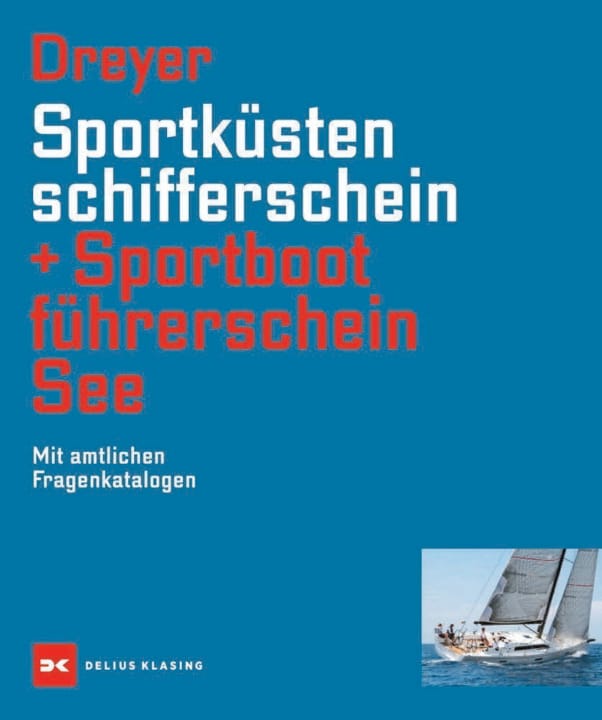
This book provides everything you need to pass the exams. Readers are prepared for both the exams and practice in an easy-to-understand and competent manner. Contains official question catalogues.
Practical knowledge for the skipper
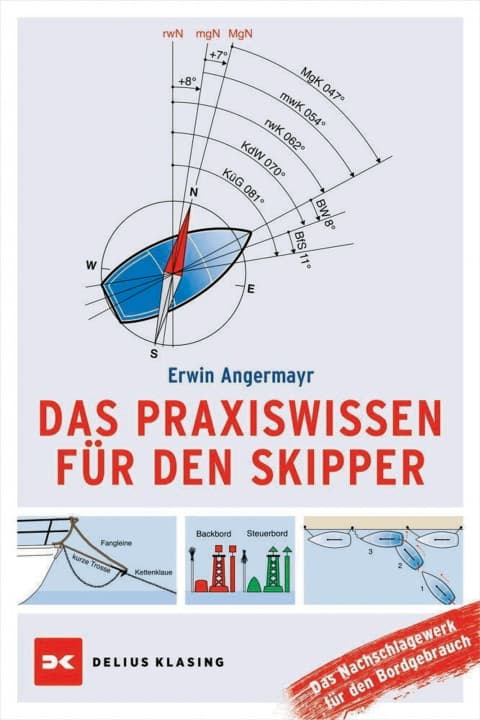
Reference book for skippersPresentation of important topics such as sailing technique, correct mooring manoeuvres, safe anchoring, navigation, weather, radio and emergency assistance.
Port manoeuvres step by step
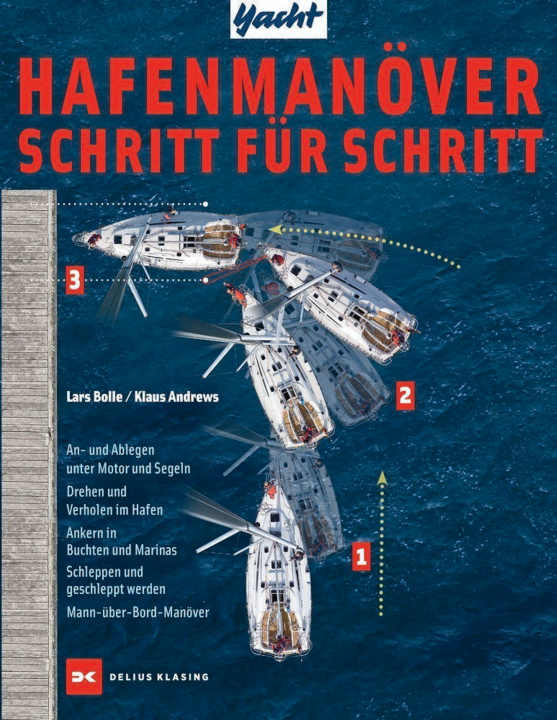
Optimal assistance for owners and charterers during harbour, anchoring and towing manoeuvres. In addition, various person-overboard manoeuvres are described.
Sailing book
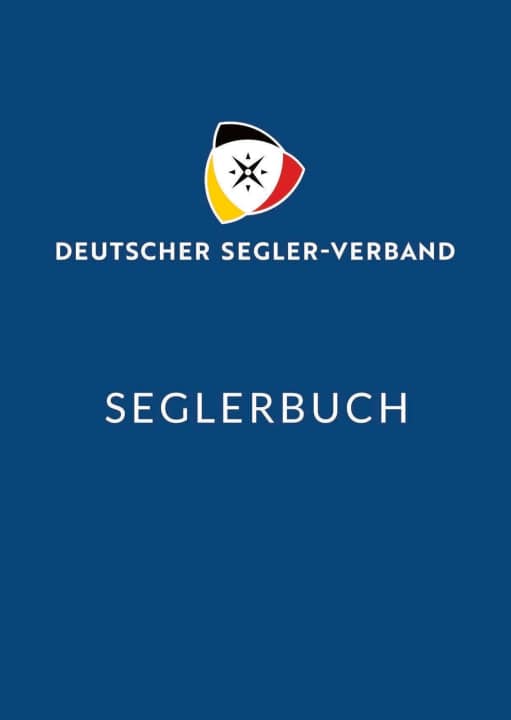
The personal proof for recording the nautical miles sailed for the SKS, SSS and SHS. In addition, participation in further training and courses organised by the DSV can be confirmed.
Practical guide to cruising
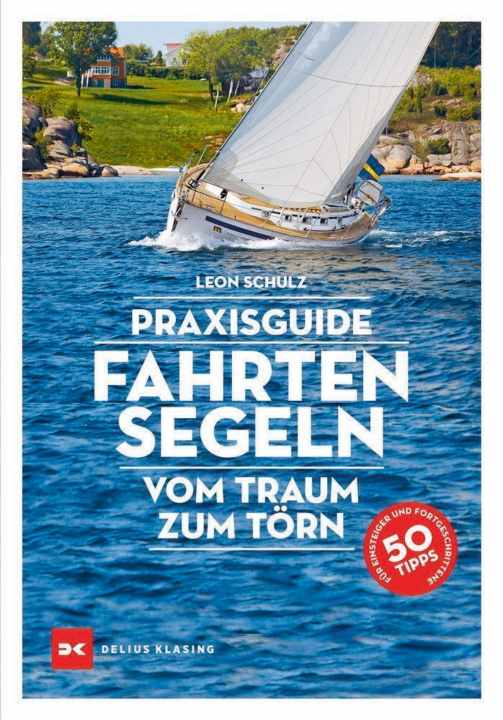
Contains important information for the first sailing trip. The handbook answers typical questions and contains many tips: from boat selection to weather and wind forecasts to sailing accessories for longer trips.
Radio communication on board yachts
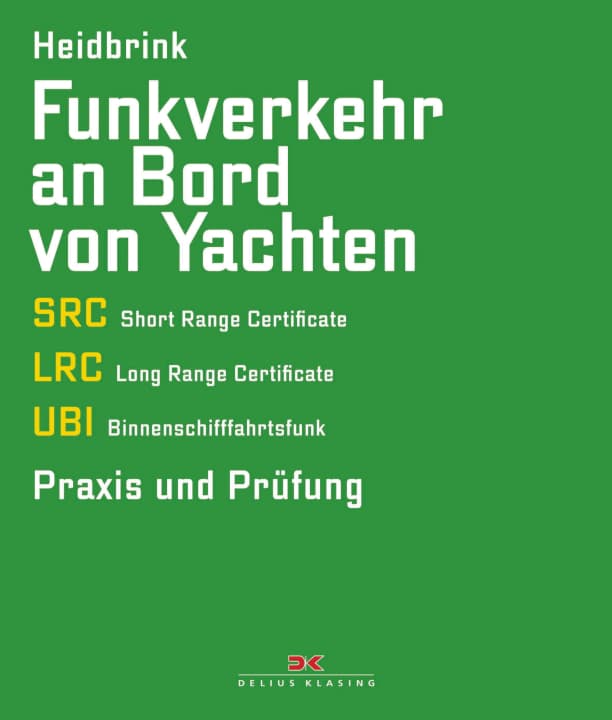
Practice and testing: The guide helps with exam preparation and for refreshing your knowledge. For the SRC, LRC and UBI radio licences.
Weather at sea
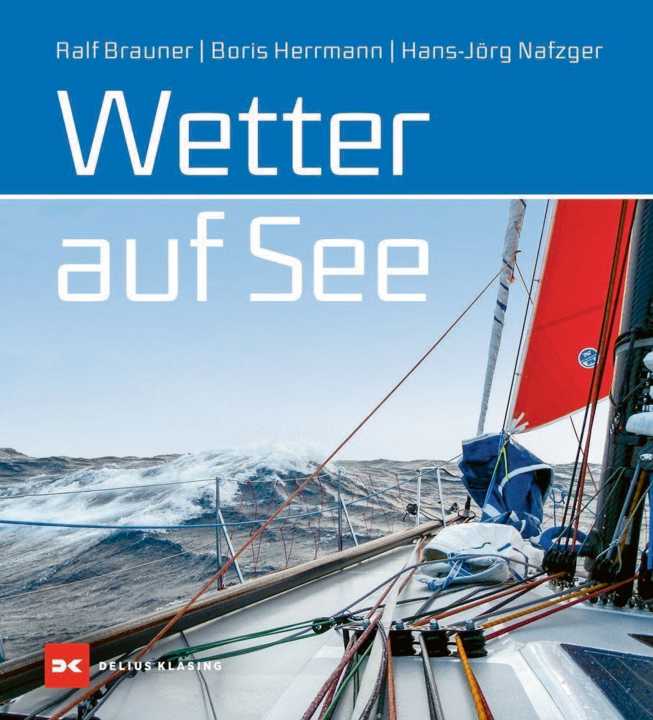
The weather is crucial for sailors. In this guide, three authors with practical experience explain how weather conditions develop and where you can obtain reliable information about them.
Yacht logbook

The perfect reference book for all sailors. Among other things, it deals with right of way, sailing manoeuvres and other important sailing topics. Very practice-orientated and in a compact format.
Cramming via app & web
In cooperation with the Association of German Sailing Schools (VDS), Delius Klasing Verlag has developed learning software for the acquisition of recreational boating licences, which is now used by more than 250 training centres in Germany. In the virtual course, an instructor explains all topics including navigation. Nautical chart excerpts and the official questionnaires complete the programme. The e-learning portal can be accessed by registering with a recreational boating school. You can then learn either in addition to the classroom lessons or exclusively with the programme at home. Some sailing schools are available for telephone counselling - nobody should despair of the theory. The exam questions can be practised at any time on the go using an app. More information: bootsfuehrerschein-portal.de

